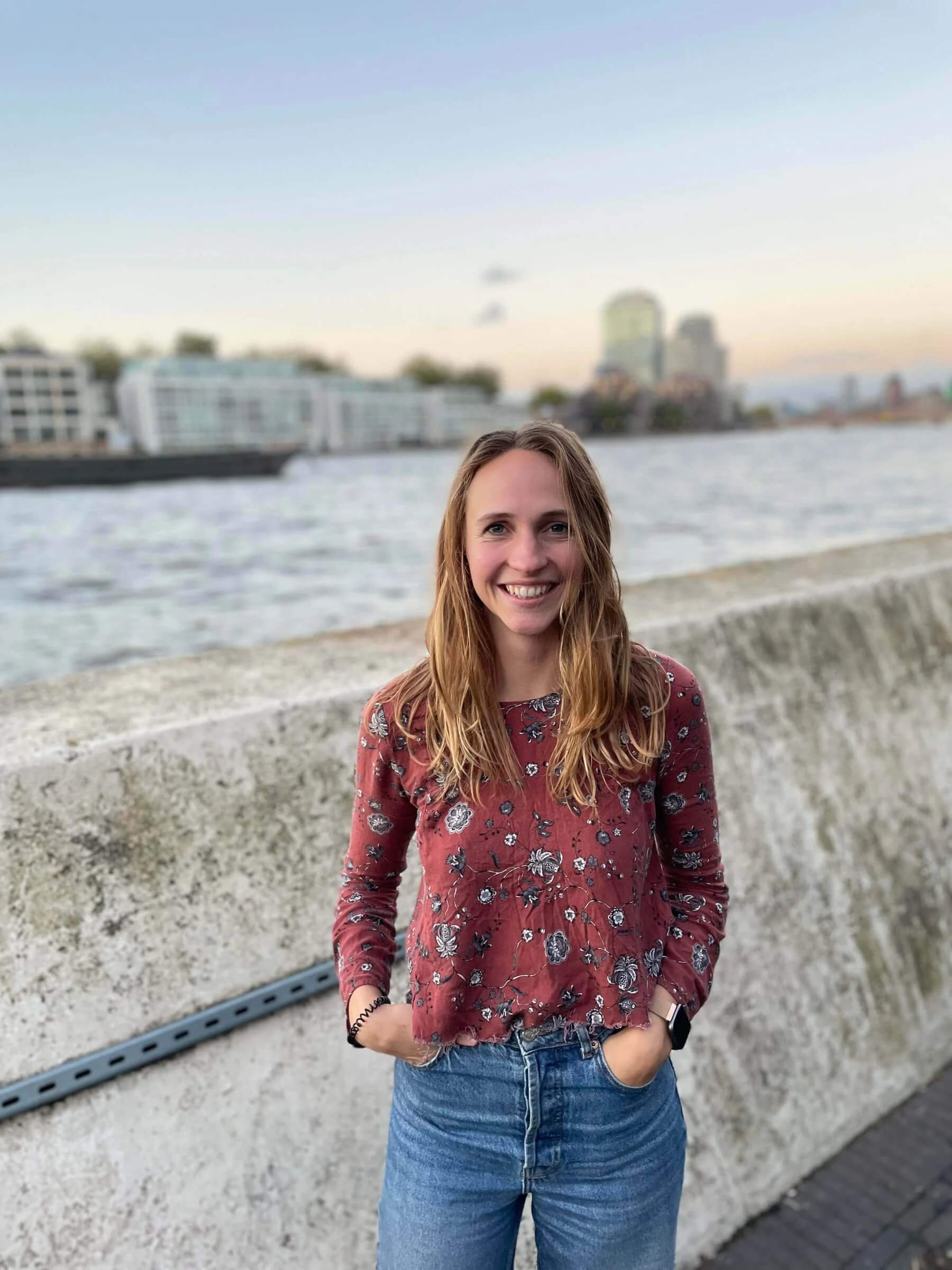Meeting the team: introducing Abigail Stevens to RestorativU
What happens after everything falls apart? It’s a question that Abigail Stevens has been asking for a long time, ever since one of her parents was released from prison. That experience opened up a lifelong line of inquiry for her: Can we put things back together after harm? Can something stronger grow in the aftermath of rupture? Can people change and…can systems?
These questions have led Abigail across countries, disciplines, and roles. Today, she’s a Product Manager at RestorativU, where she helps lead the development of restorative technologies designed not just for practitioners, but with them. She describes her work as deeply human, practical, and guided by the principle that people closest to the issue should shape the tools built to serve them.

“I’m not interested in preaching to the converted,” she says. “I want to build restorative systems that actually work in the real world—tools that meet people where they are, and that have the power to scale without losing their soul.”
Abigail’s path to restorative justice wasn’t straightforward. She studied economic and community development, and over the last decade she’s lived and worked in Chile, Bolivia, Brazil, the U.S., and the UK. Whether through community projects, academic research, or tech-driven analytics, her work has always circled back to the same core theme: how to create systems that respond better to human need.
It was in the UK that she formally encountered restorative justice—and found, in her words, “a framework that holds tension, complexity, and hope all at once.” She began working as a practitioner and researcher in Oxford and London, moving between frontline work and systems thinking. In parallel, she worked in both victim services and in reintegration programmes for people returning from prison. This dual lens helped her see restorative justice not just as a process, but as a place—one that sits between the criminal justice system and victim support. A space that, if designed well, can hold both pain and potential.
Abigail’s commitment to designing “ways forward” has also taken her into the world of data and tech. Before joining RestorativU, she worked at a Big Data company, where she helped build an AI-enabled tool that pulled search trends from Google to identify emerging sociopolitical risks. The experience sharpened her skills in analytics and systems design—but it also raised deeper questions about what kind of technology the world really needs.
For her, that answer is increasingly clear: Human-centred, accessible, and informed by context technology.
At RestorativU, she leads product development with a clear ethos: to build tools that are easy to use, meaningful across different environments, and grounded in the realities practitioners face every day. That means designing with, not just for. Listening more than speaking. And making sure the tech doesn’t strip away the relational heart of restorative work (or restorative mentoring, in our case!).
“I think we have an incredible team at RestorativU—people with strong technical backgrounds as well as lived experience. This allows us to work restoratively as a team and build compassionate technology.
She’s particularly focused on bringing restorative approaches into spaces where they haven’t traditionally been visible: schools, universities, youth services, and even sports. For her, making restorative mainstream isn’t just about scaling tools, it’s about shifting culture. And that shift starts with language, listening, and design.
Her 2019 Hatfield Prize-winning research explored exactly this kind of innovative reintegration work—community-based, dignity-first approaches to social housing. That same spirit underpins what she hopes to build at RestorativU: not a platform that performs restorative values, but one that lives them. Even in the tech itself.
When asked what makes now the right time for this work, Abigail doesn’t hesitate:
“Coming from the U.S., I’ve seen the costs of polarisation, and I’ve also seen the hunger for something different. We need approaches that can restore—not just punish or correct. Restorative justice, and especially restorative equity, offers that possibility. But it needs to be accessible, responsive, and real. That’s what I want to help build.”
At RestorativU, Abigail is doing just that: helping to design the next generation of restorative tools so that those using them day to day can work across cultures, hold space for nuance, and honour the humanity of everyone involved.
Because when things fall apart, what we build next matters.
